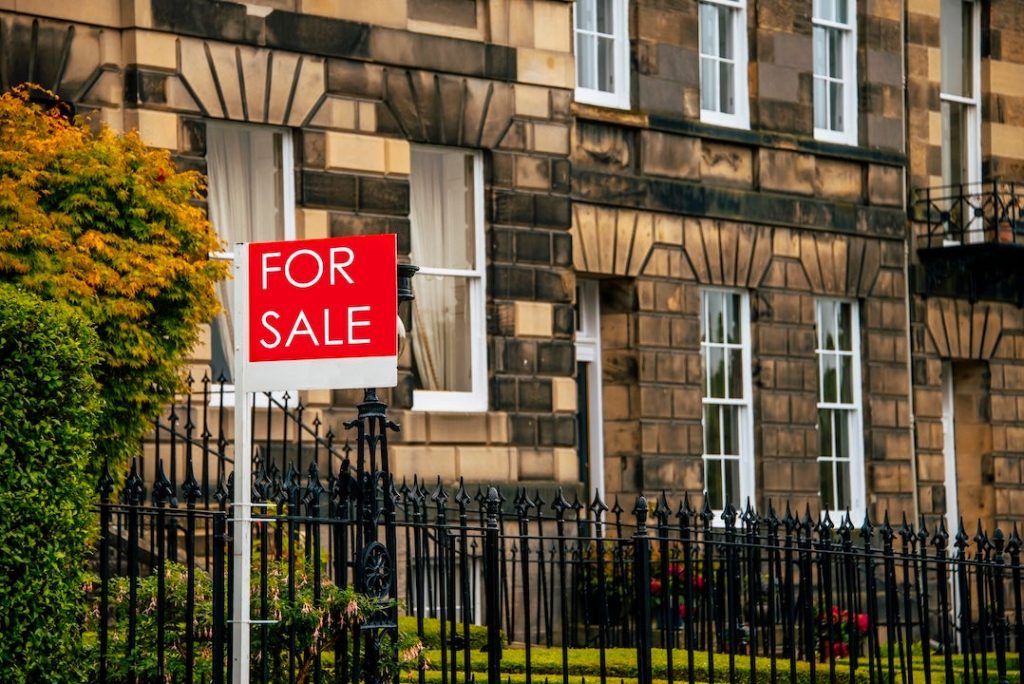Key takeways
- More homesellers may incur a capital gains tax on their proceeds, the National Association of REALORS warns, due to the dizzying rise in home equity stakes over the last few years – and no changes to exemption limits.
- Even with the increase, though, it’s unlikely that more than 10–15 percent of sellers would realize a profit over $500,000, which would trigger the tax (for married couples filing jointly).
- To avoid or minimize the “hidden home equity tax,” homeowners can file returns jointly, increase the home’s cost basis to lower any taxable profit, and live in the home long enough to take full advantage of the exemption.
Over the past decade, home prices have skyrocketed and so has homeowner equity. If you’re thinking about selling your house, there’s a good chance you’ll walk away with a nice profit. The flip side? Capital gains taxes could take a big bite out of those earnings.
According to a study by the National Association of Realtors (NAR), roughly 29 million households are teetering on the edge of a “capital gains cliff,” potentially triggering a significant tax hit when they sell, with millions more projected to do so by 2030. Approximately one in three homeowners are already at risk of this “hidden home equity tax,” as trade publication Realtor.com dubs it.
But before you start stressing over a huge bill – breathe. For most home sellers, incurring the capital gains tax remains highly unlikely. Even if you do, there are strategies to minimize it or avoid it altogether.
How capital gains taxes on home sales work
When you sell a home (or any asset) for more than you originally paid, the money you make from that sale, or your profit, is considered a capital gain.
If you’ve owned the home for more than 12 months (which is the case for a majority of sellers), you fall under the “long-term” capital gains category. That’s better for you, since long-term gains are taxed at a lower rate than regular income: either zero, 15, or 20 percent.
Your rate and how much you will actually owe (if anything) depends on your income. Most folks fall into the 15 percent rate, which applies if your taxable income falls in the $47,025–$518,900 range for singles and $94,050–$583,750 for married couples filing jointly. The 20 percent rate kicks in for incomes above these levels. If your income falls below them, you could face no capital gains tax at all.
In addition to the federal government, your state may also want a piece of your profit pie. State capital gains levies range from 2.5% to over 10%. New York and New Jersey impose some of the highest rates for homeowners, with California topping the list at 13.3%.
The capital gains tax exclusion for homeowners
That’s how the capital gains tax works in general. But residential real estate gets treated a little differently than other assets: The IRS gives homeowners a big break. If the house you’re selling was your primary residence, and you lived in it for at least two out of the last five years before selling, you’re allowed a certain amount of profit before the tax kicks in. Specifically:
- Single? You can exclude up to $250,000 in gains.
- Married and filing jointly? That exclusion goes up to $500,000.
In other words, you would need to make over $250,000/$500,000 in profit to trigger the capital gains tax on a home sale. You’d then owe tax on the amount that exceeds the exemption (not on your total profit).
It’s this exclusion, established in 1997, that’s causing NAR’s concerns. Home values have soared in the last few years, and NAR notes a lot of homeowners’ equity stakes surpass the exclusion, especially in real estate markets where prices have doubled or even tripled. It’s these homeowners that could potentially face unexpected, substantial tax bills, which discourages them from selling and negatively impacts a housing market that’s already short on inventory – effectively, a “stay-put penalty,” as Realtor.com puts it.
Debunking the capital gains tax panic
All of these numbers may have you dizzy, but the reality is that most homeowners won’t owe capital gains taxes on a sale.
First of all, not that many homes are affected. It’s true that the current exclusion limits were set nearly 30 years ago, when the median U.S. home price was much lower — and have not been adjusted for inflation over time. According to U.S. Department of Housing and Urban Development data, in the first quarter of 1997, the median home cost around $145,000 , vs. $423,000 in Q1 2025. “In the late 90s, very few — less than 1 percent — of homes would have met the criteria” to trigger the tax, says John Ricco, associate director of Policy Analysis at The Budget Lab at Yale, a nonpartisan policy research center. “And now, because of recent and continual inflation over the decades, that number is higher.”
Even so, “in our calculation, [the home value rise] impacts probably about 10 to 15 percent of homes,” Ricco says. “This is not a large fraction of the population.”
Home equity stake doesn’t equal selling price or profit
Another critical thing to keep in mind: Rising home values and/or equity stakes do not necessarily translate into taxable gains. Your home equity is the difference between your home’s worth and what you owe on your mortgage, not your sales price or your actual profit on a sale. Just because you have $550,000 worth of equity or your home has appreciated in value, it doesn’t automatically mean you’ll trigger the capital gains tax. And even if you did, you’d owe tax only on the excess amount – not on your entire gain, and certainly not on the price you realized for your home.
And that one-third of homeowners – 29 million people – who are already at risk of a capital gains tax bill? They exceed the exclusion’s $250,000 limit, the NAR study specifies. But, according to NAR’s own data, the majority of homebuyers (62 percent) are married couples – who enjoy a doubled exclusion up to $500,000 (assuming they file jointly). “Most people are not selling homes that have gone up more than half a million dollars,” says Ricco.
Bottom line: While the increase in home values has more sellers nearing the exclusion caps, it’s still a relatively small group. “About 90 percent of people would not be subject to this tax,” Ricco concludes.
Who’s most likely to get hit by the “hidden home equity tax”?
That said, there are situations where you could end up owing capital gains taxes on the sale of your home. Those most at risk usually fall into one (or more) of the following categories:
-
You’re a longtime owner in a high-cost market. If you’ve owned your home for years in expensive markets like San Francisco, New York City or Los Angeles, chances are your home’s value has skyrocketed well beyond the original purchase price, sometimes enough to blow past the exclusion limits.
-
You’re in a high-income tax bracket. Capital gains tax rates range from 0 to 20 percent, depending on your income. If you’re in a higher bracket, not only are you more likely to exceed the exclusion threshold, but you’ll also get taxed at the largest capital gains rate.
-
You’re single or file separately. That $250,000 capital gains exclusion is only half of what married couples filing jointly can take. So if your home has appreciated significantly, it’s easier to be hit with the cap if you’re selling solo. Or if you’re married filing separately, and have an income that exceeds $291,850.
- You’ve lived in the home for decades but haven’t improved it much. Upgrades like a new kitchen, an added bathroom, or finishing the basement can increase your home’s cost basis, which lowers your taxable profit (more on that below).
Can you avoid capital gains tax on a home sale?
Even if you’re one of the few who could face capital gains tax on your home sale, there are ways to avoid or reduce it.
File as married filing jointly
Filing jointly doubles your exclusion to $500,000. Your home can be in both your names, but only one spouse has to meet the primary residency requirement (living in the home for at least two years out of the last five) to qualify. The two years don’t have to be consecutive, either.
Calculate your gains carefully
Your profit on your home isn’t just based on the difference between your selling price and your own purchase price. You get to add in any significant sums you invested in maintaining, repairing and improving the property over the years. Chances are, you’ve shelled out a lot of cash on upkeep: Bankrate’s Hidden Costs of Homeownership study shows that annual home maintenance averages more than $8,800 a year, the most significant single cost for homeowners. So, keep a record and documents related to any significant upgrades, like a new roof, kitchen remodel, or modernized HVAC system. These costs can be added to your home’s cost basis, lowering your taxable gain.
Time your sale wisely
If your home’s value has shot up, and you’re nearing the exclusion limit, consider holding off until you’ve lived there long enough (two out of the last five years) to qualify for the full exclusion. Or, if you’re engaged, selling after you marry could double your exclusion.
Should capital gains tax rules change?
“The current federal policy on capital gains taxes is steadily and quietly distorting the housing market, locking in older homeowners, and strangling inventory just when America needs it most,” NAR’s report states. Admittedly, the capital gains limits haven’t been changed in close to three decades. In response to the growing number of homeowners nearing the limits, several members of Congress, including Rep. Marjorie Taylor Greene (R-Ga.) and Rep. Jimmy Panetta (D-CA), have proposed eliminating capital gains taxes or at least raising the home-sale exclusion amounts. President Trump has also weighed in, saying he’s considering eliminating the capital gains tax.
However, some financial experts are skeptical about how far-reaching the benefits of eliminating a capital gains tax would be. “On average, the people who would benefit are wealthier, they are higher income, and they are older than the average person in the U.S. or the average household in the U.S.,” says Ricco. “We calculate that among homeowners, only about one in 10 would benefit from this.”
“Although it would help people in certain high-value areas, it wouldn’t have the intended impact of really bringing home prices down across the nation,” agrees Clint Kraft, founder and financial advisor at Kraft Capital Management in Ann Arbor, Michigan. “For a lot of these first-time home buyers—those are not the properties they would be looking to purchase anyway.”
Eliminating capital gains taxes could also have an unintended negative impact, like the major loss of revenue at both the federal and state levels, says Miklos Ringbauer, principal of MiklosCPA, a California-based accounting and tax strategy firm. “If the federal government increases it or removes it fully, some states may not adopt the same rules and [it could] impact the budget deficit or the funding available for different resources,” such as public schools, he says. “Any tax legislation that happens will always benefit some, and it will always disadvantage some others in the process.”
Get more from your home
Keep your financial options open and put your equity to use with a flexible HELOC.
Explore HELOC offers
Why we ask for feedback
Your feedback helps us improve our content and services. It takes less than a minute to
complete.
Your responses are anonymous and will only be used for improving our website.
Help us improve our content
Read the full article here












